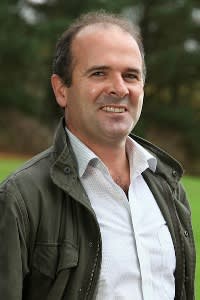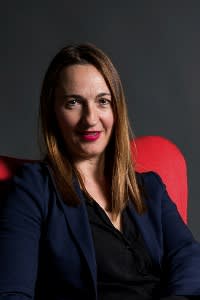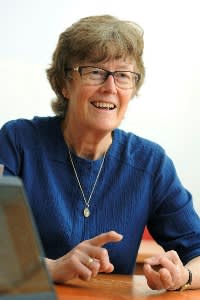Right up until recently, the initial-calendar year business enterprise and economics syllabus that Carlos Cortinhas experienced to educate could, by his very own admission, “be a drag”. Undergraduates worked as a result of textbooks and lectures detailing indifference curves and industry equilibrium, memorising the primary theories and versions of economics to access the upcoming phase of their levels.
Now, the course taught by the affiliate professor of economics at Exeter university in the Uk consists additional of debate and dialogue than rote understanding, and students talk about local weather change ahead of they even discover about source and demand.
This novel technique takes advantage of Main (Curriculum Open-obtain Sources in Economics) — a fresh new technique to teaching that grounds economics in the true planet.
Began a ten years ago and now applied in 310 universities in 68 nations, it flips typical economics teaching on its head, beginning with thorny world issues that concern young individuals and checking out how a diverse range of theories and versions can assist solve them.
“It’s absolutely improved how we educate,” Cortinhas says. “The students become additional engaged, interactive. It’s a true pleasure.”
Assorted, simple and obtainable, Main exemplifies a new type of teaching — just one that is primarily at home in business enterprise departments.
As business enterprise and administration instruction has developed, so has economics teaching in business enterprise educational facilities. This has created new options for exploration collaboration, simple perform and teaching for new audiences — all of which has sown the seeds of fresh new wondering about a customarily conservative and theoretical subject matter.
“There’s a change to how you educate economics in a business enterprise school,” says Michael Kitson, senior lecturer in intercontinental macroeconomics at the University of Cambridge Choose Small business Faculty in the Uk. “It’s considerably additional open to pluralistic methods of wondering it is only just one element of a extensive range of disciplines.”
Kitson appears back fondly on several years the place Marxist, Keynesian and neoclassical economists worked aspect by aspect, but thinks standard economics departments have dropped some of their range.
Now he feels additional at home in the business enterprise school, the place academics from a extensive range of disciplines perform on simple issues. “That pluralism in economics departments has absent,” he says. “Where that pluralism now exists is in business enterprise educational facilities.”
A British Academy paper on business enterprise studies, unveiled final month, discovered that business enterprise and administration is interdisciplinary pretty much above all else — encompassing topics from finance and economics to sociology and geography, and a significant and diverse pupil overall body.
In 2019-twenty, just one-sixth of undergraduates and just one-fifth of postgraduates in the Uk ended up enrolled on a business enterprise and administration training course, of whom 39 for each cent ended up intercontinental students and about twenty for each cent from a black, Asian or minority ethnic qualifications.
Lisa Magnani, professor of economics at Macquarie University in Australia, says the broad charm of business enterprise studies has forced economics lecturers to believe additional creatively.
“A dimension of economics is a deficiency of range — the means to scare women absent, or to attract students from particular styles of socio-economic backgrounds,” she says. “Both at undergraduate level, and at the MBA level, we’ve turned economics teaching upside down . . . the plan is used and engaged economics.”
Broader audiences and true-planet issues signify economics teaching need to recognise a wider range of versions and strategies, training course leaders say. Nowadays, both Era Z undergraduates and MBA students are additional very likely to be progressive and socially conscious, if not usually economically leftwing.
“If we went back 15 several years ago, MBA students ended up mostly wanting for the capabilities and instruction that would permit them to development in their professions,” Kitson details out. “That’s improved. Increasingly, they are wanting to understand the even larger picture in terms of world issues — inequality, local weather change, racism. These are considerably additional well known than making an attempt to maximise [their] cash flow.”
Progressive views could be significantly in demand in business enterprise departments, but they do not usually have an simple trip.
In the Uk, the University of Leicester faces an intercontinental boycott above cuts that meant researchers specialising in critical and leftwing strategies to business enterprise and economics ended up targeted for redundancy.
The university says it is positioning higher emphasis on huge knowledge, analytics and synthetic intelligence. It aims to “focus on exploration on present-day troubles the place there is clear demand from buyers of exploration and from funders”, to equip graduates with the “relevant capabilities to generate positive impression about the world”.
On the other hand, David Harvie, a political economist and just one of these struggling with redundancy, says cuts to critical thinkers have ruined the likelihood of a truly diverse and difficult business enterprise curriculum at Leicester.
“I believe it will die out,” he says. “I sense like some of it is primarily based on the plan that anyone who goes to Leicester is not ready to examine humanities. But look at individuals now rediscovering Keynes, Marx — individuals do have to have heritage.”
Other educators argue that new sorts of economics teaching do not go significantly sufficient. At Rethinking Economics, a pupil and academic-led movement to reshape the subject matter, co-director of functions Tree Watson says although the true-planet part of Main opens up new views, truly pluralist principle is missing. “It’s continue to neoclassical economics at the close of the working day,” she says.
But Wendy Carlin, professor of economics at University College London and a task director at Main, argues that the new methods of teaching economics are getting embraced not just in business enterprise educational facilities but where ever the subject matter is taught. With outstanding final results, way too. A 2020 examine discovered the marks of students who took Main averaged 17 for each cent greater than these who did not observe the syllabus, and not only economics students felt a raise but also these researching finance and administration topics.
Carlin describes the Main technique as setting up not from the assumptions of excellent facts and versions, as in standard economics teaching, but in the way the true planet will work, with all its imperfections.
That, she hopes, will not only make economics additional obtainable for students, but will also assist create new theories and frameworks for the issues of tomorrow.
“These different concepts of cash and all the measurements of [gross domestic solution] arrived out of the Excellent Depression — we facial area different issues now,” she says. “There’s an hunger for seriously revisiting how we check out the economy . . . We’ve demonstrated it is attainable, but there is a great deal additional to be completed — and need to be for universities to maintain their relevance.”








More Stories
Transform Your Bathroom: The Beauty of Glass Shower Enclosures
The Role of Advertising Agencies for Promoting Businesses
Know The Efficiency Of Banner Advertising